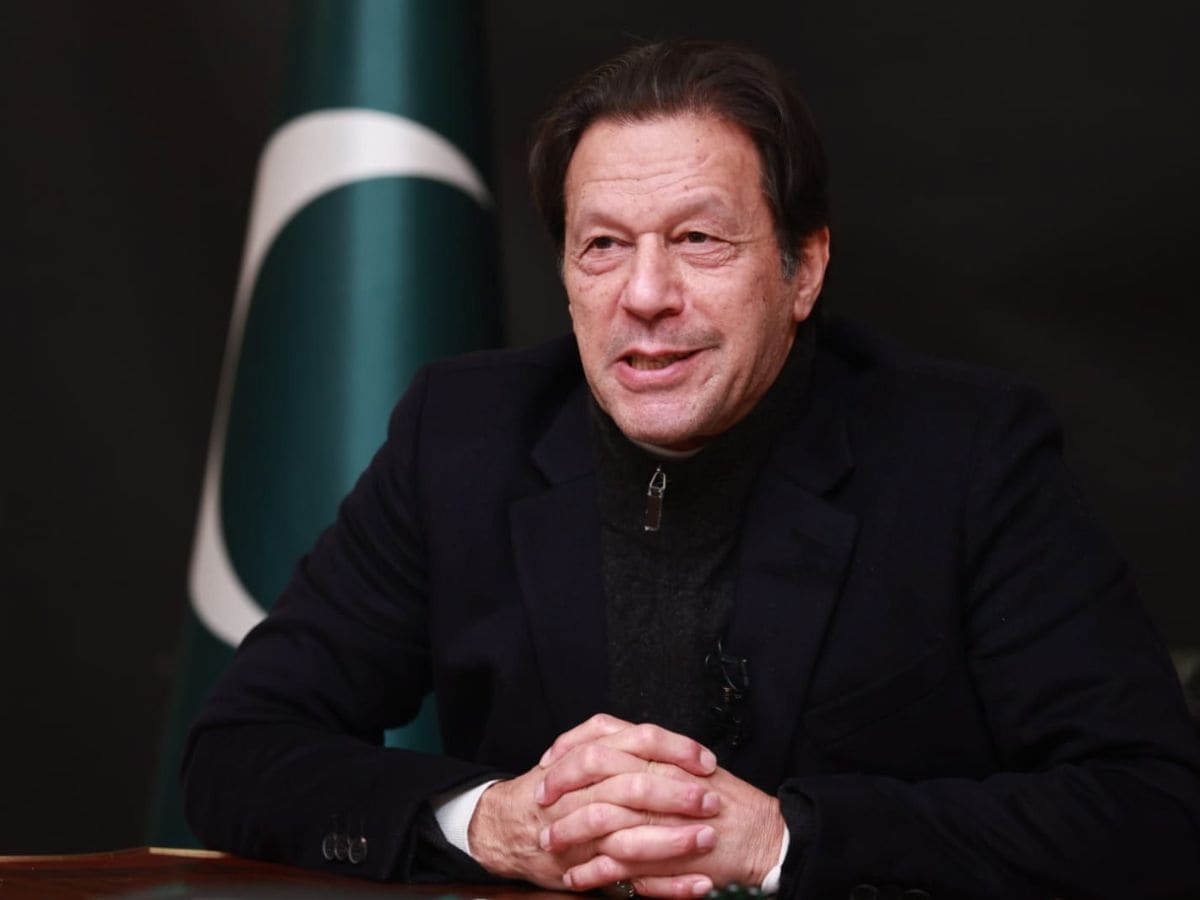
Islamabad: A UN group has demanded the immediate release of Pakistan’s jailed former prime minister Imran Khan, saying at least two cases slapped on him were “politically motivated” and aimed to exclude him from the country’s political scene.
The United Nations Working Group on Arbitrary Detention adopted its opinion on the 71-year-old Pakistan Tehreek-e-Insaf (PTI) party founder’s detention in its 99th session from March 18-27 in Geneva.
The UN body said that Khan’s detention and prosecution in the first Toshakhana corruption case and cipher cases were “politically motivated” to exclude him from competing in the political arena.
The UN group also said that it was “without legal basis”, the Dawn newspaper reported.
The case alleges that Khan had “deliberately concealed” details of the gifts he retained from the Toshaskhana — a repository where presents handed to government officials from foreign officials are kept — during his time as the prime minister and proceeds from their reported sales.
It is separate from the second Toshakhana corruption case against Khan and his spouse Bibi which alleged that they retained a jewellery set received from the Saudi crown prince against an undervalued assessment.
Listing many legal inconsistencies and irregularities in the various court proceedings of the PTI chief, the body said it was rendering its opinion on whether Khan’s detention was arbitrary.
On August 5, 2023, a trial court in Islamabad convicted the PTI founder in the first case filed by the Election Commission of Pakistan (ECP) and jailed him for three years.
He was arrested by Punjab police later that same day from his Zaman Park residence in Lahore.
The ECP had later disqualified Khan for five years following his conviction. However, the Islamabad High Court later suspended his three-year sentence.
The UN body based its opinion on its source’s detailed and unrebutted submissions regarding the ultra vires nature of the prosecution in the first Toshakhana case, as well as the context of the political repression of Khan and his party in which that prosecution occurred.
“The working group concludes that his detention had no legal basis and appears to have been intended to disqualify him from running for political office. Thus, from the outset, that prosecution was not grounded in law and was reportedly instrumentalised for a political purpose,” it said.
It further added that how Khan was convicted in the first Toshakhana case (namely, a summary judgment delivered in absentia) and his subsequent arrest by law enforcement personnel who broke into his residence and assaulted him and his staff were concerning and compounded the illegality.
The working group further said that Khan’s prosecution in the cipher case “lacks a grounding in law, as his actions do not appear to have violated the Official Secrets Act, as was apparently corroborated by the intelligence services, according to the source’s unrebutted submissions”.
The cipher case pertains to a diplomatic document that the Federal Investigation Agency’s charge sheet alleges was never returned by then-PM Khan, who long held that the document contained a threat from the US to topple his government.
Regarding his sentences in the second Toshakhana case and the Iddat case, the UN group noted: “The working group cannot but observe the coincidence in the timing of the four prosecutions, which effectively prevented Mr Khan from contesting the general election originally scheduled for November 2023.”
It further summarised that “noting the convergence of factors that appear to be aimed at removing Mr Khan from contesting the election and restricting his party’s fair participation in the election, and in the absence of any response from the government, the working group finds that, at the very least, Mr Khan’s arrest, detention and prosecution in the first Toshakhana case and the cipher case were without any legal basis and would appear to be politically motivated to exclude his participation in the election.”
The working group noted that in the absence of any rebuttal from the government, “it would appear that the prosecutions brought against Mr Khan are related to his leadership of the PTI and indicate a determination to silence him and his supporters and exclude their political participation.”
The group added that it was “evident” that the basis of his subsequent arrest and detention was his exercise of freedom of assembly.
Concluding its opinion, the working group said that Khan’s deprivation of liberty was arbitrary and requested the government to take the steps necessary to remedy the PTI founder’s situation without delay and bring it into conformity with the relevant international norms.
“The working group considers that taking into account all the circumstances of the case, the appropriate remedy would be to release Mr Khan immediately and accord him an enforceable right to compensation and other reparations, in accordance with international law.”
“The working group urges the government to ensure a full and independent investigation of the circumstances surrounding the arbitrary deprivation of liberty of Mr Khan and to take appropriate measures against those responsible for the violation of his rights,” the opinion said.
Reacting to the UN working group’s opinion, the PTI termed it a “huge” development, according to the report.
